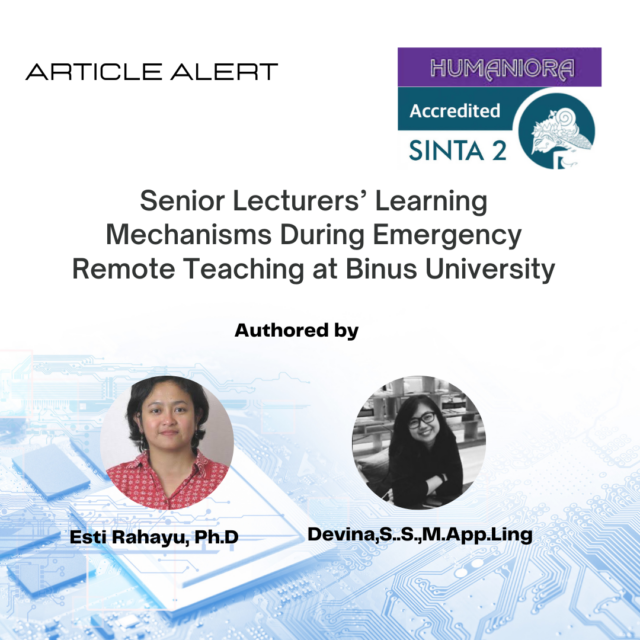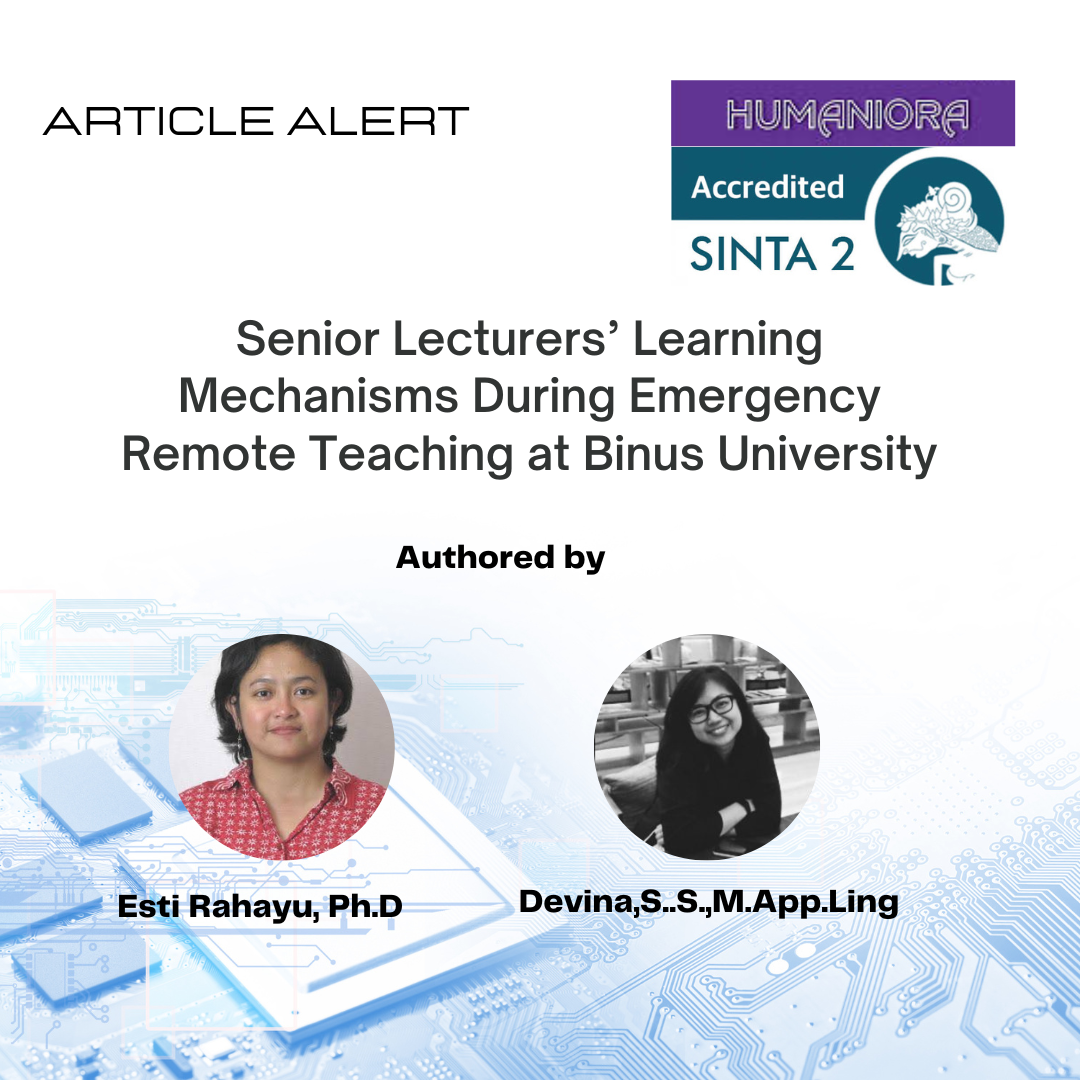Senior Lecturers’ Learning Mechanism During Emergency Remote Teaching at Binus University

The research aimed to identify senior lecturers’ experiences with online teaching during ERT (Emergency Remote Teaching). The ominous Covid-19 forced tertiary education institutions in Indonesia to employ ERT, both synchronous and asynchronous online teaching, from March 2020. Not all existing lecturers were professionally ready for this change, specifically, senior lecturers who had been teaching for over 25 years. These senior lecturers entered unfamiliar territory as they had been experiencing the drastic transition to ERT. This transition could be viewed as a learning process as they went through certain learning mechanisms. The qualitative method was used to examine the learning mechanisms of senior lecturers who have been teaching during this ERT. This method was appropriate, as it allowed an understanding of lecturers’ experience in their professional growth. This case study examined five senior lecturers teaching English as a Foreign Language at the university level for more than 25 years. Data analysis followed the procedures developed by Braun and Clarke. The research finds that each lecturer experiences learning mechanisms, including identification, coordination, reflection, and transformation. During the identification, they learn to understand the need to adapt, adopt, and change. They also experience different kinds of unfamiliar events that have to be faced. They adapt to unfamiliar situations during the phase of coordination through reading, joining webinars (web seminars), and mentoring during the coordination. Each of them reflects on the process of shifting the boundaries of their competencies or knowledge from previously teaching offline to online. The last learning mechanism is the transformation that leads to profound changes after experiencing disruptions in the current workflow. Those multiple disruptions shape them in facing ERT.
For the full article: https://journal.binus.ac.id/index.php/Humaniora/article/view/6906

Comments :